Publications Search Results
Our Publication Search Results
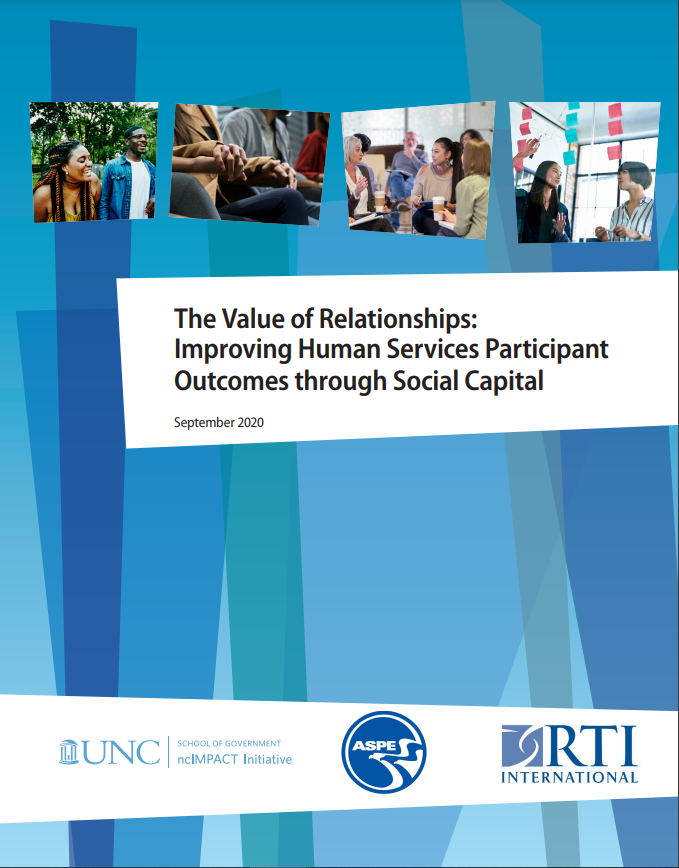
The Value of Relationships: Improving Human Services Participant Outcomes through Social Capital
09/01/20Social capital focuses on the personal relationships and networks that each of us has and how we use them. For many human service program managers, social capital may be key to reaching program goals. In fact, whatever your role in the organization, your skill at helping participants build and benefit from their own social capital may in some cases be as central to your program’s success as securing funding.
…
Continued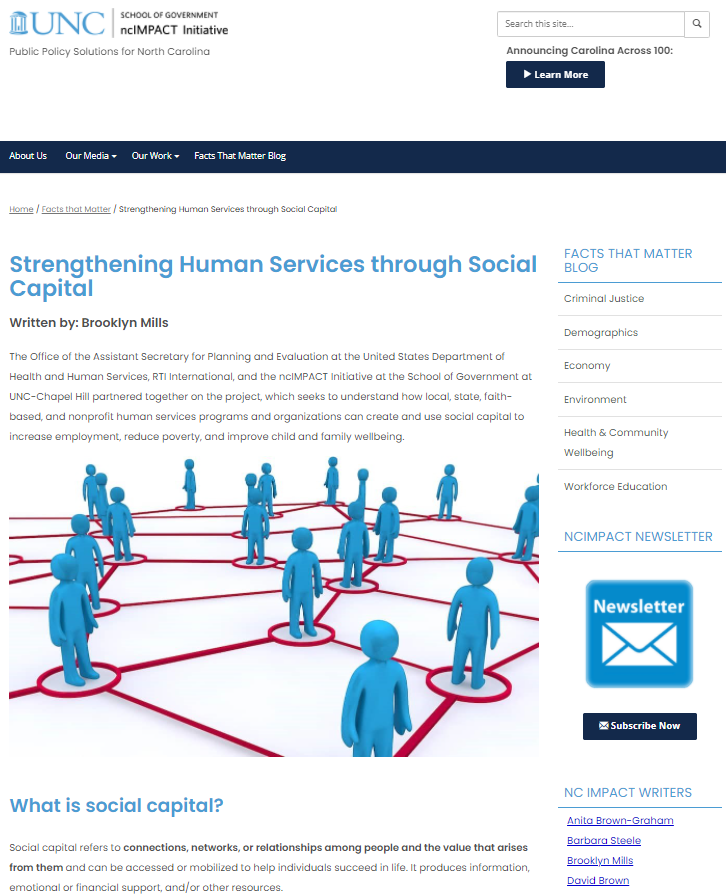
Strengthening Human Services through Social Capital
06/17/20The Office of the Assistant Secretary for Planning and Evaluation at the United States Department of Health and Human Services, RTI International, and the ncIMPACT Initiative at the School of Government at UNC-Chapel Hill partnered together on the project, which seeks to understand how local, state, faith-based, and nonprofit human services programs and organizations can create and use social capital to increase employment, reduce poverty, and improve child and family wellbeing.
…
Continued
Emerging Social Capital Principles and Practices
06/17/20According to our expert advisors, before individual practices are put in place, certain principles – referred to by those involved as ideas, convictions, or values — need to exist in programs first. They should be recognized and used by staff. All aspects of a social capital-based approach rely on these principles.
…
Continued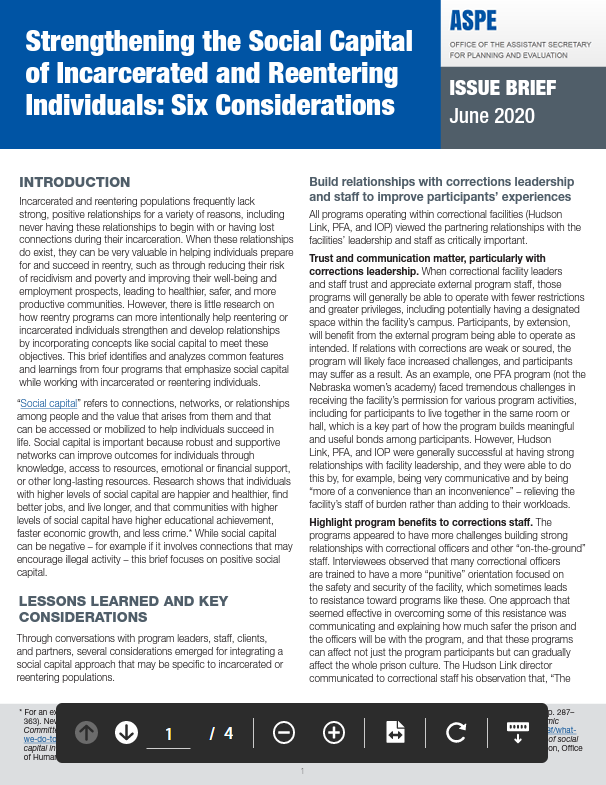
Strengthening the Social Capital of Incarcerated and Reentering Individuals: Six Considerations
06/01/20Incarcerated and reentering populations frequently lack strong, positive relationships for a variety of reasons, including never having these relationships to begin with or having lost connections during their incarceration. When these relationships do exist, they can be very valuable in helping individuals prepare for and succeed in reentry, such as through reducing their risk of recidivism and poverty and improving their well-being and employment prospects, leading to healthier, safer, and more productive communities. However, there is little research on how reentry programs can more intentionally help reentering or incarcerated individuals strengthen and develop relationships by incorporating concepts like social capital to meet these objectives. This brief identifies and analyzes common features and learnings from four programs that emphasize social capital while working with incarcerated or reentering individuals.
…
Continued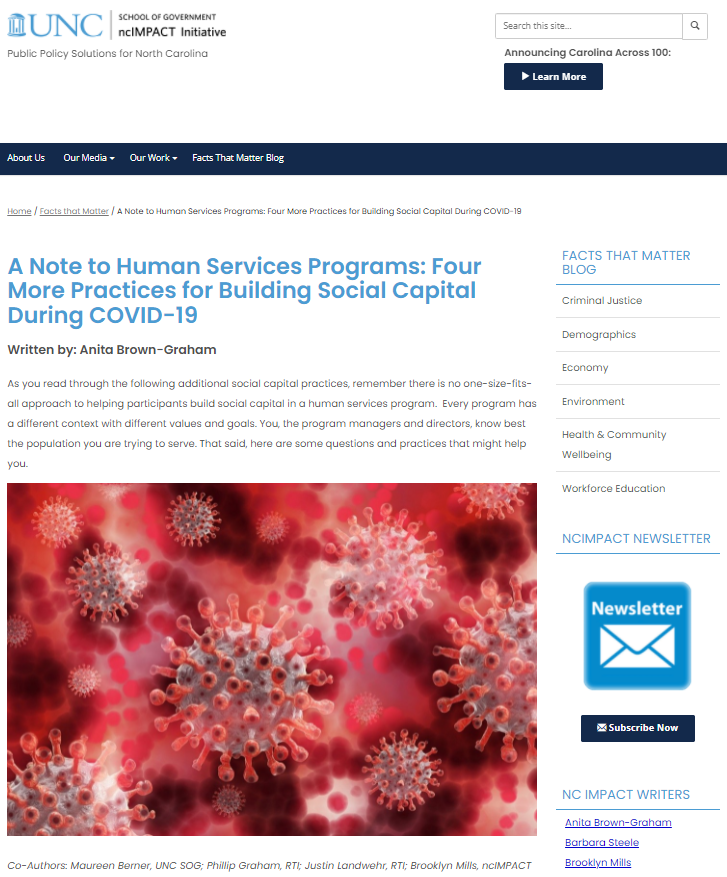
A Note to Human Services Programs: Four More Practices for Building Social Capital During COVID-19
04/01/20As you read through the following additional social capital practices, remember there is no one-size-fits-all approach to helping participants build social capital in a human services program. Every program has a different context with different values and goals. You, the program managers and directors, know best the population you are trying to serve. That said, here are some questions and practices that might help you.
…
Continued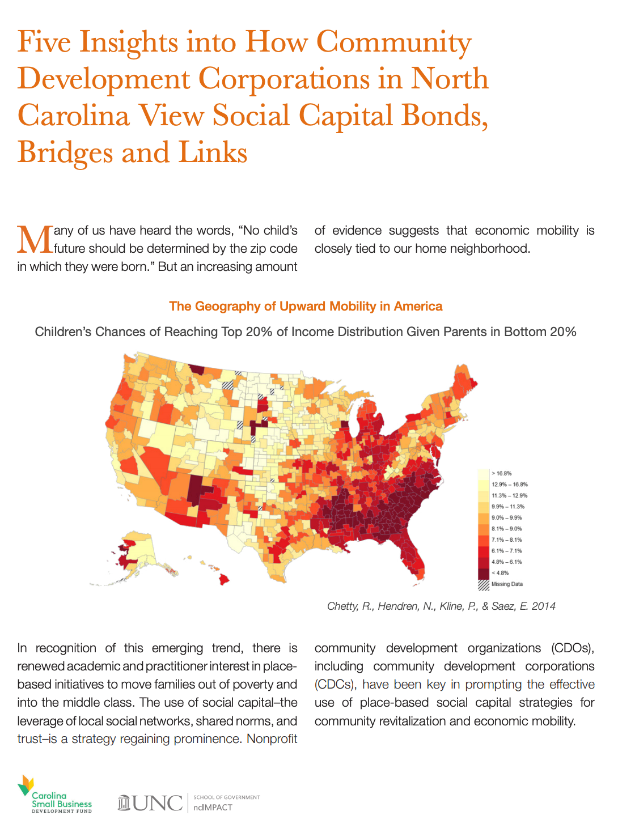
Five Insights into How Community Development Corporations in North Carolina View Social Capital Bonds, Bridges and Links
05/31/19“The use of social capital–the leverage of local social networks, shared norms, and trust–is a strategy regaining prominence. Nonprofit community development organizations (CDOs), including community development corporations (CDCs), have been key in prompting the effective use of place-based social capital strategies for community revitalization and economic mobility”
…
Continued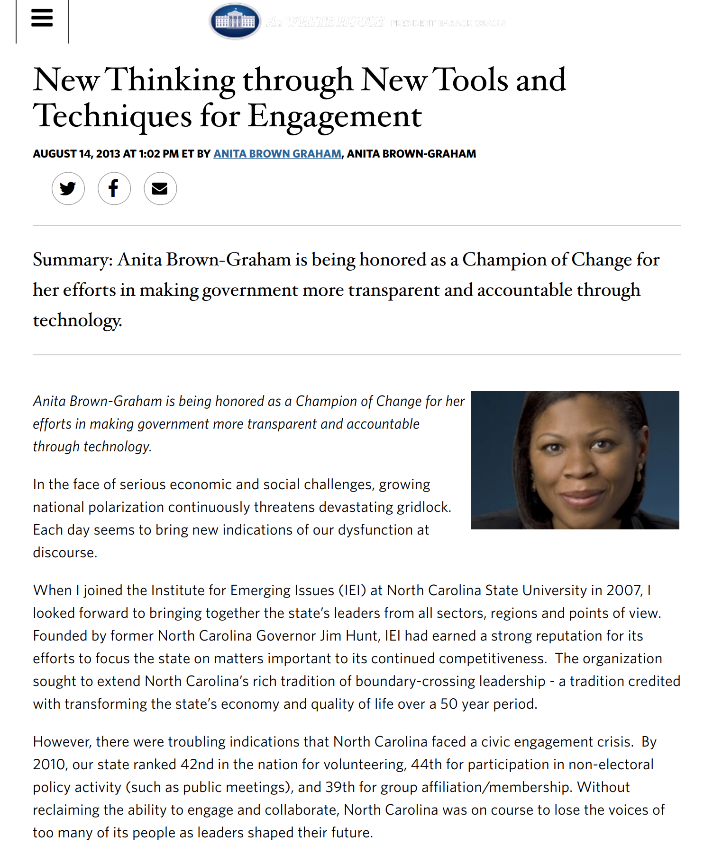
New Thinking through New Tools and Techniques for Engagement
08/14/13“IEI needed to respond to this crisis, but we could not act alone. We reached out for the wisdom of hundreds across the state. With their contributions of content, design support, software innovations and funding, we created the Emerging Issues Commons – a first of its kind engagement tool – both a physical space and an online hub that is today transforming how citizens across the state connect with each other, access information, and take collaborative action on important issues.”
…
Continued